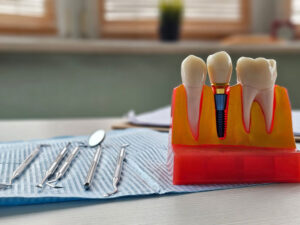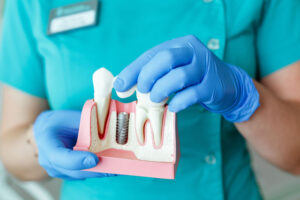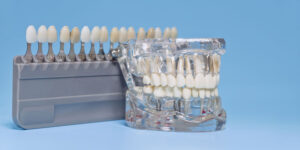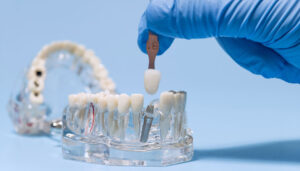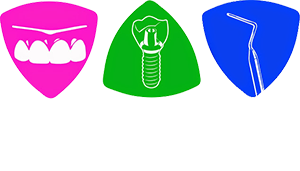Did you know that a dry mouth can eventually lead to gum disease? This surprises many people who never considered their dry mouth a serious condition. In fact, having reduced saliva production can be a huge problem from a dental standpoint.
When your mouth is dry, the moisture that naturally protects and lubricates your hard and soft tissues practically vanishes. This leaves you with a sticky, hot and uncomfortable feeling. It may be tough to remember to swallow, or challenging to talk. You may have a sense that your mouth is “on fire” or that your tongue is chapped and cracked.
These are all unpleasant sensations, and reason enough to get treatment for your dry mouth. However, there is another reason you should address this issue: bacteria growth.
Without saliva, the bacteria in your mouth are able to grow more quickly than they normally might. They quickly reproduce, making colonies in the spaces between your teeth and gums, the so-called periodontal pockets. The more bacteria present, the more rapidly they begin to eat away at your gums, teeth and jawbone.
The key, of course, is several-fold. First, we want to identify the presence of dry mouth and gum disease. Then, we need to determine how much damage the gum disease has caused. From there, we can develop a thorough treatment plan to manage this condition, if not entirely reverse it.
In the meantime, there are some ways you can reduce your dry mouth in Eden Prairie, MN:
- Drink lots of water. Have a bottle of it with you at all times, even if you are not going to the gym or doing anything particularly rigorous. Your mouth will feel much better as you constantly lubricate it and your throat.
- Suck on sugarless hard candies or chew sugarless gum. You will encourage your body to produce more saliva naturally.
- Talk to your doctor about the medications you take. Some medicines have dry mouth as a side effect. You may be able to switch to another pharmaceutical without this symptom.
- Use toothpastes that stimulate the production of saliva. Your periodontist can tell you more about the possibilities when you come for your appointment.
Above all else, be certain to make and keep regular visits with a periodontist if you have dry mouth. That way, you can ensure that any issues will be identified and treated early.


